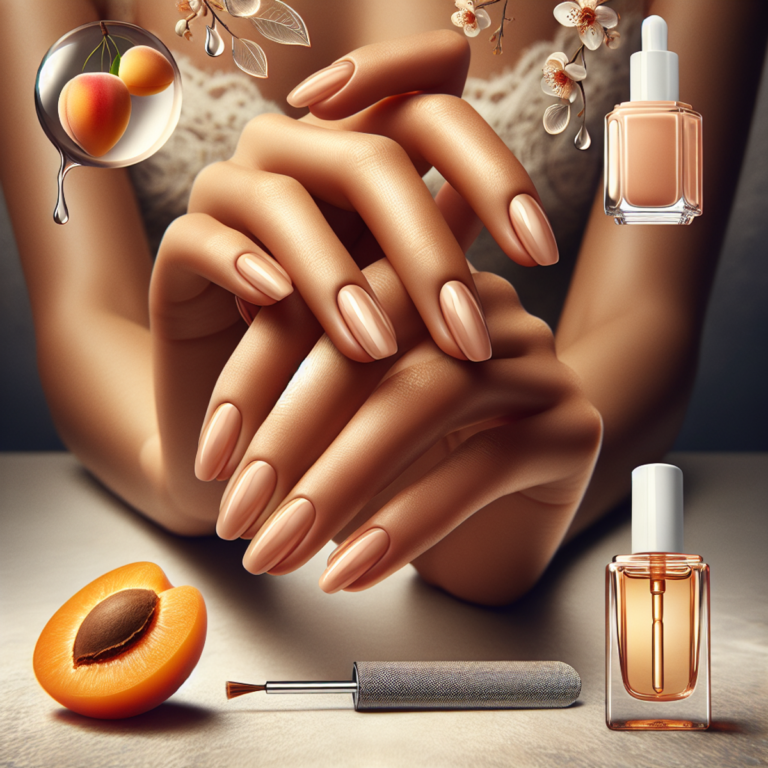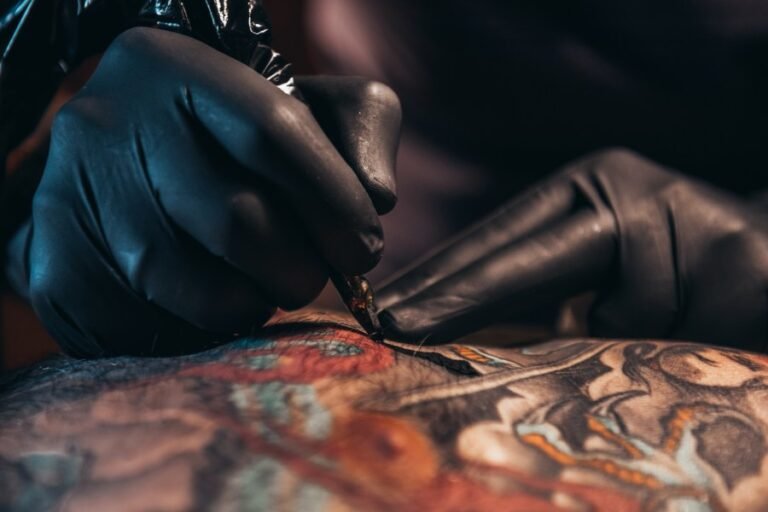How to get rid of acne, according to a dermatologist

Introduction
Dealing with acne can be tough, but knowing what causes it and how to treat it is crucial. This article, “How to get rid of acne, according to a dermatologist,” offers a detailed guide on managing and treating acne based on expert advice.
Here’s what you’ll learn:
- A thorough explanation of acne and its different types.
- Treatments recommended by dermatologists, including creams and hormonal solutions.
- Simple home remedies for your daily skincare routine.
- Quick solutions for sudden breakouts.
- Understanding how lifestyle choices affect acne.
- Knowing when it’s time to see a professional.
By the end of this article, you will have a clearer understanding of how to manage acne effectively with strategies tailored to your skin’s needs.
Understanding Acne
Acne is a common skin condition that can show up in different ways, affecting people of all ages. Knowing the various types of acne and their causes is essential for effective treatment.
Types of Acne
- Whiteheads: Closed pores blocked by oil and dead skin cells.
- Blackheads: Open pores filled with excess oil and dead skin cells, appearing black due to oxidation.
- Pimples: Inflamed red lesions often containing pus.
- Cysts: Large, painful lumps beneath the skin’s surface filled with pus.
Main Causes of Acne
Hormonal changes play a major role in acne development. Androgen hormones, like testosterone, increase during puberty and other life stages, leading to higher oil production in the skin. This excess oil can clog pores when combined with dead skin cells.
Oil production from sebaceous glands is another critical factor. When the glands produce too much oil, it can mix with dead skin cells and block hair follicles. This blockage creates an environment where Propionibacterium acnes bacteria thrive.
How Dead Skin Cells and Bacteria Contribute
Dead skin cells contribute to clogged pores by combining with excess oil. This mixture forms a plug that blocks hair follicles, leading to whiteheads and blackheads. When trapped bacteria multiply within these blocked follicles, they cause inflammation, resulting in pimples or cysts.
Understanding these factors helps you create a comprehensive plan for how to get rid of acne. Recognizing the types and causes allows for targeted treatments that address specific issues related to acne development.
Dermatologist Recommendations for Acne Management
1. Topical Treatments: Benzoyl Peroxide and Retinoids
Topical treatments are often the first line of defense in combating acne. According to a dermatologist, these treatments can be highly effective when incorporated into a personalized skincare routine.
Benzoyl Peroxide
Benzoyl peroxide is one of the most commonly recommended topical treatments for acne. This powerful ingredient offers several benefits:
- Bacteria Elimination: Benzoyl peroxide works by killing Propionibacterium acnes (P. acnes), the bacteria responsible for many acne outbreaks.
- Unclogging Pores: It helps to clear out pores by removing dead skin cells and excess oil, which are common culprits behind clogged pores.
- Anti-inflammatory Properties: Reducing inflammation is crucial in managing acne, and benzoyl peroxide is known for its anti-inflammatory effects.
Example Usage: Apply a thin layer of benzoyl peroxide gel or cream to the affected area once or twice daily, depending on the severity of your acne and your skin’s tolerance.
Retinoids
Retinoids, derivatives of vitamin A, are another cornerstone in dermatology treatments for acne. They work through various mechanisms:
- Cell Turnover: Retinoids accelerate cell turnover, helping to shed dead skin cells more rapidly and prevent them from clogging pores.
- Oil Production Reduction: By reducing sebum production, retinoids help manage oily skin, a significant factor contributing to acne.
- Anti-aging Benefits: Retinoids are also known for their anti-aging properties, making them a dual-purpose treatment that can improve the overall texture and appearance of your skin.
Example Usage: Start with a lower concentration retinoid cream or gel applied at night, gradually increasing frequency as your skin builds tolerance.
Combining Treatments
For optimal results, dermatologists may recommend using both benzoyl peroxide and retinoids as part of a comprehensive skincare regimen.
- Morning Routine: Cleanse with a gentle, non-comedogenic cleanser followed by applying benzoyl peroxide.
- Evening Routine: Cleanse again before applying a retinoid product.
Tip: Always use sunscreen during the day when using these treatments since both can increase your skin’s sensitivity to UV rays.
2. Hormonal Treatments: Birth Control Pills and Spironolactone
Hormonal fluctuations play a significant role in the development of acne. Dermatologists often turn to hormonal treatments to address these imbalances effectively.
Birth Control Pills
Birth control pills can be an effective treatment option for women with hormonal acne:
- Regulation of Hormones: Birth control pills help regulate hormone levels by reducing androgen production, thereby decreasing oil production.
- Consistency is Key: It may take several months of consistent use before noticeable improvements are seen.
Consult Your Doctor: Always consult with your healthcare provider before starting birth control pills for acne management.
Spironolactone
Spironolactone is another medication used to manage hormonal acne:
- Anti-Androgen Effects: Spironolactone blocks androgen receptors in the skin, reducing oil production and subsequent breakouts.
- Dosage Matters: The dosage will vary based on individual needs and should be monitored by a healthcare professional.
Example: Typically taken orally once or twice daily under medical supervision.
Incorporating these dermatologist recommendations into your skincare routine can significantly improve acne management. Personalized skincare approaches tailored to your unique needs ensure that you get rid of acne effectively according to a dermatologist’s expertise.
2. Hormonal Treatments: Birth Control Pills and Spironolactone
Hormonal imbalances play a significant role in the development of acne, particularly in women. Elevated levels of androgen hormones like testosterone can increase oil production in the skin, leading to clogged pores and breakouts. Addressing these hormonal fluctuations is crucial for effective acne management.
Birth Control Pills
Birth control pills are a common dermatology treatment for managing acne. They work by regulating hormone levels, particularly reducing the amount of androgens. This results in decreased oil production and fewer breakouts. Commonly prescribed birth control pills for acne include:
- Combination Pills: Contain both estrogen and progestin, helping to balance hormone levels.
- Progestin-only Pills: Often used when estrogen-containing pills are not suitable due to medical reasons.
Example: Combination pills like Ortho Tri-Cyclen, which have been FDA-approved for acne treatment, are often recommended by dermatologists.
Spironolactone
Spironolactone is another hormonal treatment option that targets the underlying causes of acne. Originally a diuretic used to treat high blood pressure, spironolactone has anti-androgen properties which make it effective for acne management.
- Mechanism: Blocks androgen receptors and reduces androgen production.
- Benefits: Decreases oil production, minimizes pore clogging, and reduces inflammation.
Example: Dermatologists may prescribe spironolactone at doses ranging from 50 to 200 mg per day, depending on the severity of the acne and patient tolerance.
Important Considerations
Both birth control pills and spironolactone require a prescription and should be used under the guidance of a healthcare provider. These treatments are most effective when personalized based on individual skin types and specific characteristics of acne.
Addressing hormonal imbalances through medication can significantly improve skin health and reduce persistent breakouts, providing a tailored approach to clear skin according to dermatological expertise.
At-home Remedies for Acne Management
Importance of a Consistent Skincare Routine
Maintaining a consistent skincare routine is crucial in your fight against acne. A well-structured regimen helps manage oil production, clear clogged pores, and reduces the occurrence of breakouts. Key steps in this routine should include:
- Gentle Cleansing: Use a mild, sulfate-free cleanser to wash your face twice daily. This removes excess oil and impurities without stripping your skin of its natural moisture.
- Non-comedogenic Products: Choose products labeled as non-comedogenic, meaning they won’t clog pores. This applies to moisturizers, sunscreens, and makeup.
Recommendations for Gentle Cleansing and Non-comedogenic Products
When selecting skincare products, pay attention to their ingredients and formulation. Here are some recommendations:
- Cleansers: Look for cleansers containing salicylic acid or glycolic acid to gently exfoliate and unclog pores.
- Moisturizers: Opt for lightweight, oil-free moisturizers that hydrate without adding excess oil.
- Sunscreens: Use broad-spectrum sunscreens with SPF 30 or higher, ensuring they are non-comedogenic.
Natural Remedies: Spearmint Tea and Anti-Androgen Effects
Natural remedies can complement your skincare routine by addressing internal factors that contribute to acne.
Potential Benefits of Spearmint Tea on Hormonal Balance
Spearmint tea has gained attention for its potential anti-androgen effects. Androgens are hormones that can increase oil production in the skin, leading to acne. Some studies suggest that drinking spearmint tea may help balance these hormones, reducing acne symptoms. In fact, this article delves deeper into how certain teas like spearmint can be beneficial for acne management.
- Drink two cups of spearmint tea daily to potentially see improvements in hormonal acne over time.
Other Natural Remedies That May Help Reduce Acne Symptoms
Several other natural remedies might also be beneficial in managing acne:
- Green Tea: Due to its anti-inflammatory properties, applying green tea extract topically or drinking it can help reduce inflammation and sebum production.
- Tea Tree Oil: Known for its antibacterial properties, tea tree oil can be applied directly to pimples using a cotton swab. Always dilute it with a carrier oil like jojoba oil to prevent skin irritation.
- Aloe Vera: Aloe vera gel soothes irritated skin and possesses antibacterial properties that can help reduce acne.
By incorporating these at-home remedies along with a consistent skincare routine and dermatologist-recommended treatments from resources like Dr. Papantoniou’s blog, you stand a better chance of managing and reducing acne effectively. Remember, hormonal changes during the menstrual cycle can also impact your skin health; understanding the link between ovulation and acne could provide further insights into managing your skincare routine effectively during such times.
Quick Fixes for Pimples: Overnight Solutions and Emergency Care Techniques
Sometimes you need an emergency solution for that unexpected pimple. Here are some effective methods to remove pimples overnight and tips on how to get rid of pimples quickly.
Effective Spot Treatments
1. Benzoyl Peroxide
An excellent option for overnight pimple removal. It kills acne-causing bacteria and reduces inflammation. Apply a small amount directly to the affected area before bedtime.
2. Salicylic Acid
This ingredient helps unclog pores and reduce swelling. Look for spot treatments containing 2% salicylic acid and apply it directly to the pimple.
3. Sulfur-Based Products
Sulfur helps dry out the surface of your skin to absorb excess oil that may contribute to acne formation. Use sulfur-based masks or spot treatments for quick relief.
Home Remedies for Quick Relief
1. Ice
Applying ice can reduce redness, swelling, and pain associated with pimples. Wrap an ice cube in a clean cloth and hold it against the affected area for a few minutes.
2. Toothpaste
Some people use toothpaste as a quick fix due to its drying properties. Apply a small dab on the pimple and leave it overnight. Ensure it’s non-gel toothpaste to avoid skin irritation.
Natural Alternatives
1. Tea Tree Oil
Known for its antibacterial properties, tea tree oil can be used as a natural spot treatment. Dilute it with a carrier oil (like coconut oil) before applying it to prevent irritation.
2. Aloe Vera Gel
Aloe vera is soothing and has anti-inflammatory properties. Apply pure aloe vera gel directly on the pimple before bed.
Using these methods can help you learn how to get rid of pimples overnight or at least reduce their appearance significantly by morning. However, remember that these are temporary solutions, and consistent skincare routines are essential for long-term acne management.
Lifestyle Factors Affecting Acne: Diet, Stress Management, and Skincare Habits
Role of Diet in Managing Inflammation Linked to Acne
Diet plays a crucial role in managing acne by affecting inflammation levels in the body. Some foods can worsen acne by causing inflammatory responses. Processed foods high in sugars and refined carbohydrates can raise insulin levels, possibly leading to more oil production and clogged pores. On the other hand, a diet rich in fruits, vegetables, whole grains, and lean proteins can help reduce inflammation. Omega-3 fatty acids found in fish like salmon and flaxseeds are especially helpful for their anti-inflammatory properties.
Importance of Hydration, Sleep Quality, and Exercise for Skin Health
Maintaining optimal hydration is essential for skin health as it helps to flush out toxins and keep the skin moisturized. Aim to drink at least 8 glasses of water a day. Sleep quality also has a direct impact on skin health; poor sleep can lead to stress and hormonal imbalances that may trigger acne outbreaks. Ensuring you get 7-9 hours of quality sleep each night can significantly improve your skin’s appearance.
Exercise is another critical component. Regular physical activity improves blood circulation, promoting healthier skin by delivering more oxygen and nutrients to skin cells. Activities such as yoga or jogging not only benefit your skin but also help in stress management, which is crucial for reducing acne.
Tips for Maintaining Clear Skin Through Daily Habits
Adopting consistent skincare habits can go a long way in managing acne:
- Gentle Cleansing: Use a mild cleanser twice daily to remove dirt, excess oil, and makeup without irritating your skin.
- Non-Comedogenic Products: Opt for skincare products labeled as non-comedogenic to ensure they do not clog your pores.
- Avoid Touching Your Face: Hands often carry bacteria; touching your face can transfer these bacteria to your skin, worsening acne.
- Regular Exfoliation: Use gentle exfoliants 1-2 times per week to remove dead skin cells that could clog pores.
These lifestyle factors collectively contribute to maintaining clear and healthy skin.
When to Seek Professional Help: Severe Acne Treatment and Signs to Consult a Dermatologist
Recognizing when to seek professional advice is crucial in managing severe acne effectively. Persistent cystic acne, characterized by deep, painful cysts that do not respond to over-the-counter treatments, is a clear sign that it’s time to consult a dermatologist.
Signs That Indicate the Need for Professional Help:
- Persistent Cystic Acne: Deep, inflamed cysts that persist despite home treatments.
- Scarring: Formation of scars from repeated acne outbreaks.
- Psychological Impact: Significant emotional distress or impact on self-esteem due to acne.
Benefits of Regular Consultations with a Dermatologist:
- Personalized Treatment Plans: Dermatologists can tailor treatments based on your specific skin type and the severity of your acne.
- Access to Prescription Medications: Stronger treatments like antibiotics or isotretinoin are available only through dermatologists.
- Professional Skin Care Advice: Expert guidance on skincare routines and products that suit your skin type.
Seeking professional help ensures you receive an effective and comprehensive approach to managing severe acne. This strategy combines medical treatments with personalized skincare advice, providing the best chance for clear and healthy skin.
Conclusion: Personalizing Your Approach to Acne Management with Dermatological Expertise
Effective treatment strategies often require a personalized approach. Consulting a dermatologist ensures that your skin type and specific acne characteristics are considered, leading to tailored solutions that work best for you.
Combining at-home remedies with professional guidance can optimize results. Regular skincare routines, alongside dermatologist-recommended treatments, provide a comprehensive strategy for long-term management. This dual approach addresses both immediate concerns and underlying causes, enhancing overall skin health.
By seeking professional advice, you gain access to expert insights and advanced treatments that might not be available over-the-counter. This proactive step can significantly improve your journey towards clearer skin.
FAQs (Frequently Asked Questions)
What are the main types of acne?
Acne can manifest in several forms, including whiteheads, blackheads, pimples, and cysts. Each type represents different stages and characteristics of acne.
What causes acne?
The primary causes of acne include hormonal fluctuations that increase oil production, as well as the role of dead skin cells and bacteria that contribute to its development.
What topical treatments do dermatologists recommend for acne?
Dermatologists often recommend topical treatments such as benzoyl peroxide, which helps to reduce bacteria and oil on the skin, and retinoids, which assist in reducing oiliness and promoting cell turnover.
Are there any effective at-home remedies for managing acne?
Yes, maintaining a consistent skincare routine is crucial. Gentle cleansing with non-comedogenic products is recommended. Additionally, natural remedies like spearmint tea may help balance hormones and reduce symptoms.
When should I seek professional help for acne?
You should consult a dermatologist if you experience persistent or severe acne, such as cystic acne. Regular consultations can provide tailored treatment options based on your specific skin type and severity.
How do lifestyle factors influence acne?
Diet plays a significant role in managing inflammation linked to acne. Additionally, maintaining hydration, quality sleep, and regular exercise can contribute to overall skin health and help in preventing breakouts.










